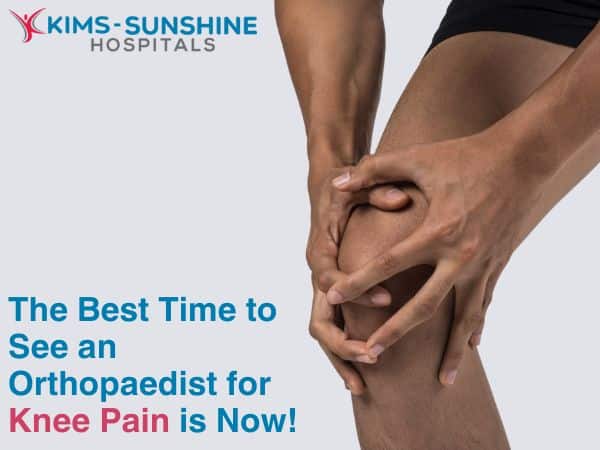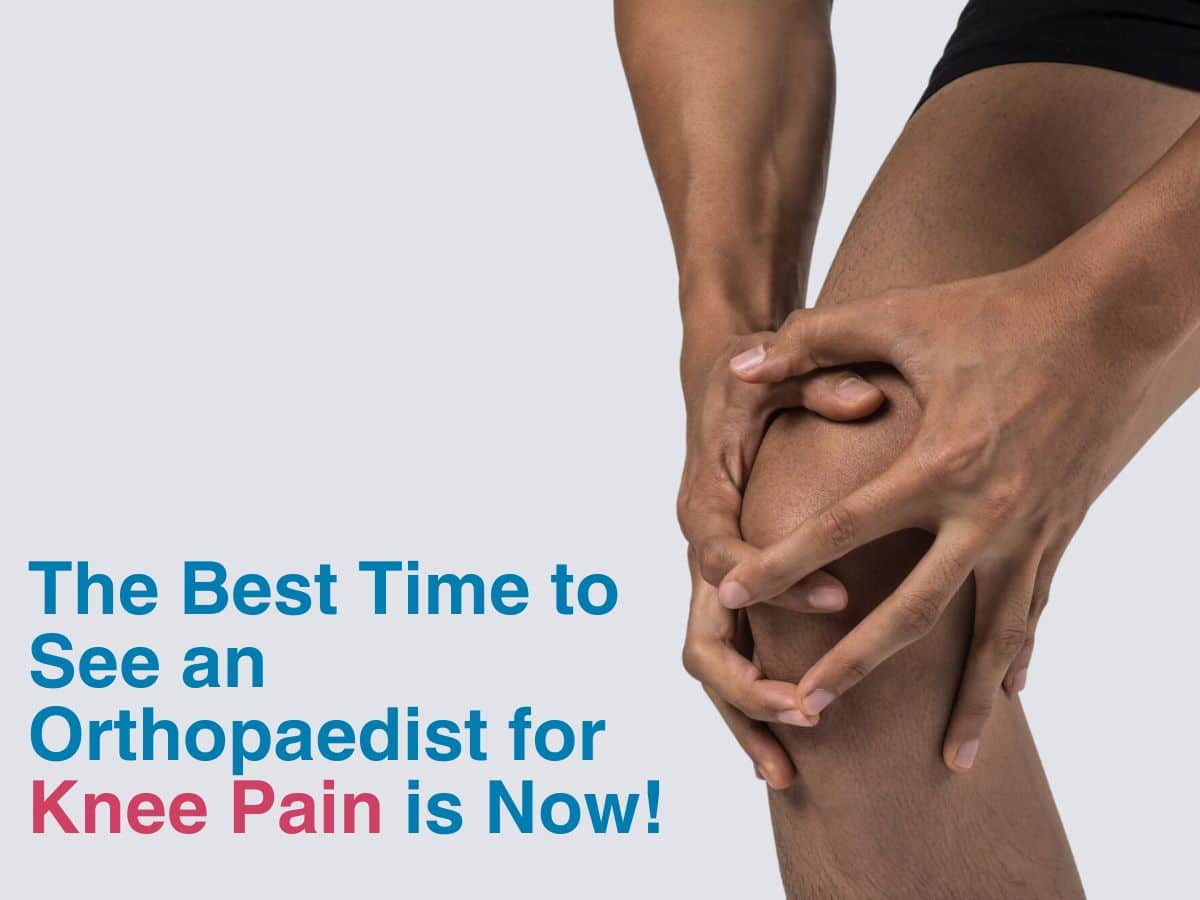
The Best Time to See an Orthopaedist for Knee Pain is Now!

The knee is the largest joint in our body and is instrumental in helping us bear our body weight, maintain balance, and to stand or walk with ease. This joint works in great synergy with 4 different ligaments and the menisci respectively. This means there are several ways we can get injured, but the symptom remains constant- unbearable pain. It is necessary to understand when consulting a doctor becomes important. Let us walk you through the various warning signs and why they may happen.
How do I Know if my Knee Pain is Serious?
Painful knees mean there is something wrong with the joint- and it may be due to different causes like old age, auto-immune disease like rheumatoid arthritis (RA), gout or traumatic injury (ligament tears, damage of the meniscus). Getting medical help depends on the severity of symptoms like the following ones:
- Deformed knees
- Too much swelling and pain (may also be due to blood thinning medications, which may increase the degree of the swelling)
- Hearing an audible ‘pop’ sound
- Having difficulty while getting up after sitting (stiffness), maintaining balance (instability) or walking
- Knee has less sensation
- Not being able to sleep because of the pain
- Lesser range of motion than before
- Referred pain in the hip or legs
When Should You See a Doctor for Knee Pain?
Waiting it out is not a great strategy if your quality of life is getting affected very adversely. But, on an average, if someone has knee pain for longer than 3 weeks of time, then it is a good idea to talk to an orthopaedic doctor. For athletes, since staying in top condition and maintaining peak performance is a matter of great import, 48 hours is the threshold. If your pain seems to reduce with inactivity, then get some rest. Use this approach as a general thumb rule -PRICE- pressure, rest, ice, compression, and elevation. Even after this, if the pain just seems to keep getting worse, get help.
After the doctor determines if further testing is needed, you may be asked to get scans done, to help them visualise the joint better. There are a lot of treatment options available these days to reduce pain and help you feel better.
Conclusion
Timely treatment and rest are the two most important ways to recover soon. So, waiting does work at times, but not always. Consulting an orthopaedic doctor will mean that you understand what the exact issue is, and what preventive measures you can take for the future.
Frequently Asked Questions

Dr. Kushal Hippalgaonkar
MBBS, DNB (Orthopaedics), Certified Robotic Joint Replacement Surgeon (USA, Australia)
Consultant Orthopaedic Surgeon, Executive Director, Sunshine Hospitals






